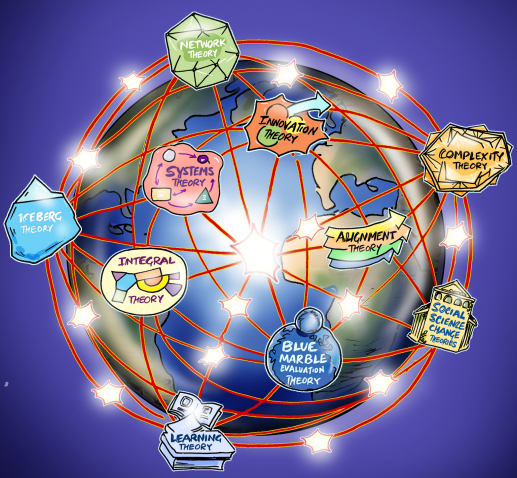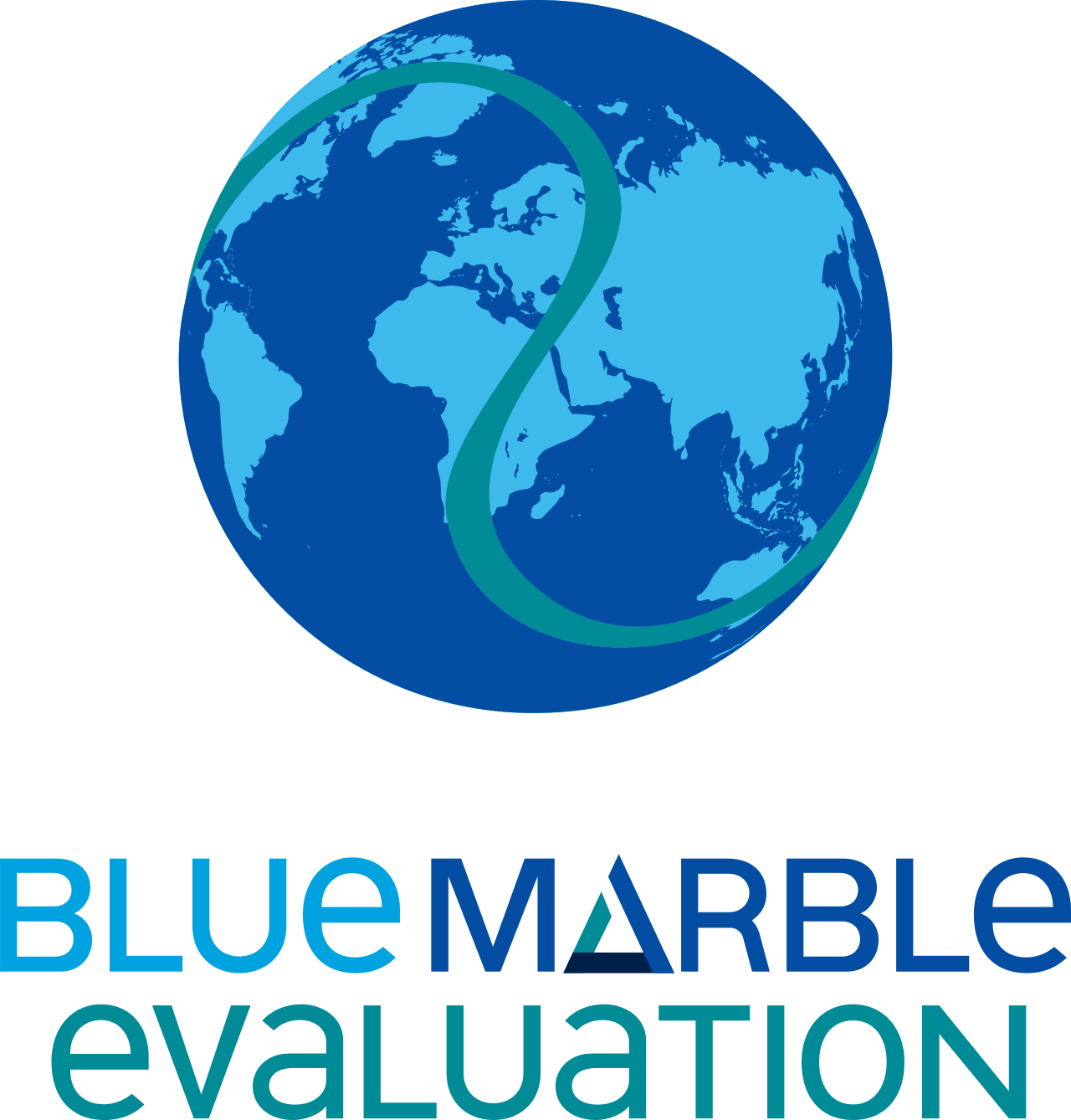Several members of the Blue Marble Evaluation network will be presenting at the K12 TIG Business Meeting at the American Evaluation Association Conference:
When primary and secondary students perform poorly on international tests such as PISA, education policymakers often consider “borrowing” or emulating policies from more successful nations. Blue Marble Evaluation calls us to apply the GLOCAL principle to evaluations by integrating interconnections across different levels (local, national, global). Focusing on the issue of context when it comes to policy borrowing in the field of education, this session will examine the question of how global ideas can be adapted to local needs.
Evaluators and researchers from Canada, the United States, and Greenland will discuss the importance of context, leadership, and capacity in the quest to develop differing education systems that are affected by and responsive to globalization while meeting local needs. These two perspectives are key to addressing social change, social justice, equity and sustainability.
Panelists:
Mitdlarak Lennert, Internal evaluator, PhD, MIO – National advocacy for Children’s rights, Researcher, Ilisimatusarfik University of Greenland
Wendy Rowe, Professor, School of Leadership, Royal Roads University, Victoria, Canada Credentialled Evaluator (CE) with the Canadian Evaluation Society (CES)
Keiko Kuji-Shikatani, Education Officer, Ontario Ministry of Education CE, CES Fellow, Credentialing Board member
Discussant: Dianne Hirshberg, Interim Director & Professor of Education Policy, Institute of Social and Economic Research, University of Alaska Anchorage & Vice-President Academic, University of the Arctic
Chair: Charmagne Campbell-Patton, Director of Organizational Learning & Evaluation, Utilization-Focused Evaluation
Presentations:
Mitdlarak Lennert
The impact of schooling policies and evaluation systems adopted from elsewhere: A case study of Greenland Improving education access and quality has been a priority ever since Greenland assumed responsibility for its education sector in 1980. Many of the elements the Greenlandic society is built around are taken from other societies and cultures where development has been underway for a longer time. Politically, Greenland has imported, and continues to do, structures and systems adapted to other societies. This results in certain difficulties throughout the system, especially in the education system. Education policies and evaluation systems, such as New Public Management, have been imported and tried implemented but with varying results as due to the Greenlandic administrative context and capacity, it hasn’t been possible to take full advantage of the evaluation instruments.
Keiko Kuji-Shikatani
Evaluative Thinking in Action – Learning as we go as public sector practitioners The pandemic is showing us that individual matters as actions have reverberating consequences. Systems matter as how they address and protect people have dire consequences for the individuals that live in them. The pandemic is reminding us that peoples around the world share something in common at the core, which the public sector organizations are entrusted to realize. Public sectors are showing us that systems can pivot and move when they want to when an indisputable evidence comes in front of them. The quick development of the Covid vaccines showed us that collaboration can move us forward in a good way. We now know that inequalities in education are exacerbated by Covid-19. The presentation will examine what this means for us evaluators, working in a space that influences policies that affect the lives of millions of learners and their families and communities for generations to come.
Wendy Rowe
Application of the Act ion Learning and Evaluation Framework (AL-E) to effect change Applying global strategies to local issues requires attention to context and culture. The Action Learning and Evaluation Framework (AL-E) involves engaging in evaluative inquiry that is continually evolving to meet complex needs of a culturally diverse audience. Systems thinking, dialogic processes and data gathering facilitate learning about and adapting the program processes to move initiatives towards intended objectives and goals – an evaluation approach called developmental evaluation by Michael Quinn Patton (2011) – and consistent with principles articulated in Blue Marble Evaluation (Patton, 2020). Patton speaks to multiple stakeholders with different interests/ expectations, ill defined needs, shifting and diverse goals, inadequate resources and emerging people and technical capacities. The need for change and adaptation is critical to sustainability of a program. Consequently, evaluative inquiry must support program change while addressing questions of what has occurred, what outcomes and impacts have emerged, and what are the contributing factors and conditions.



